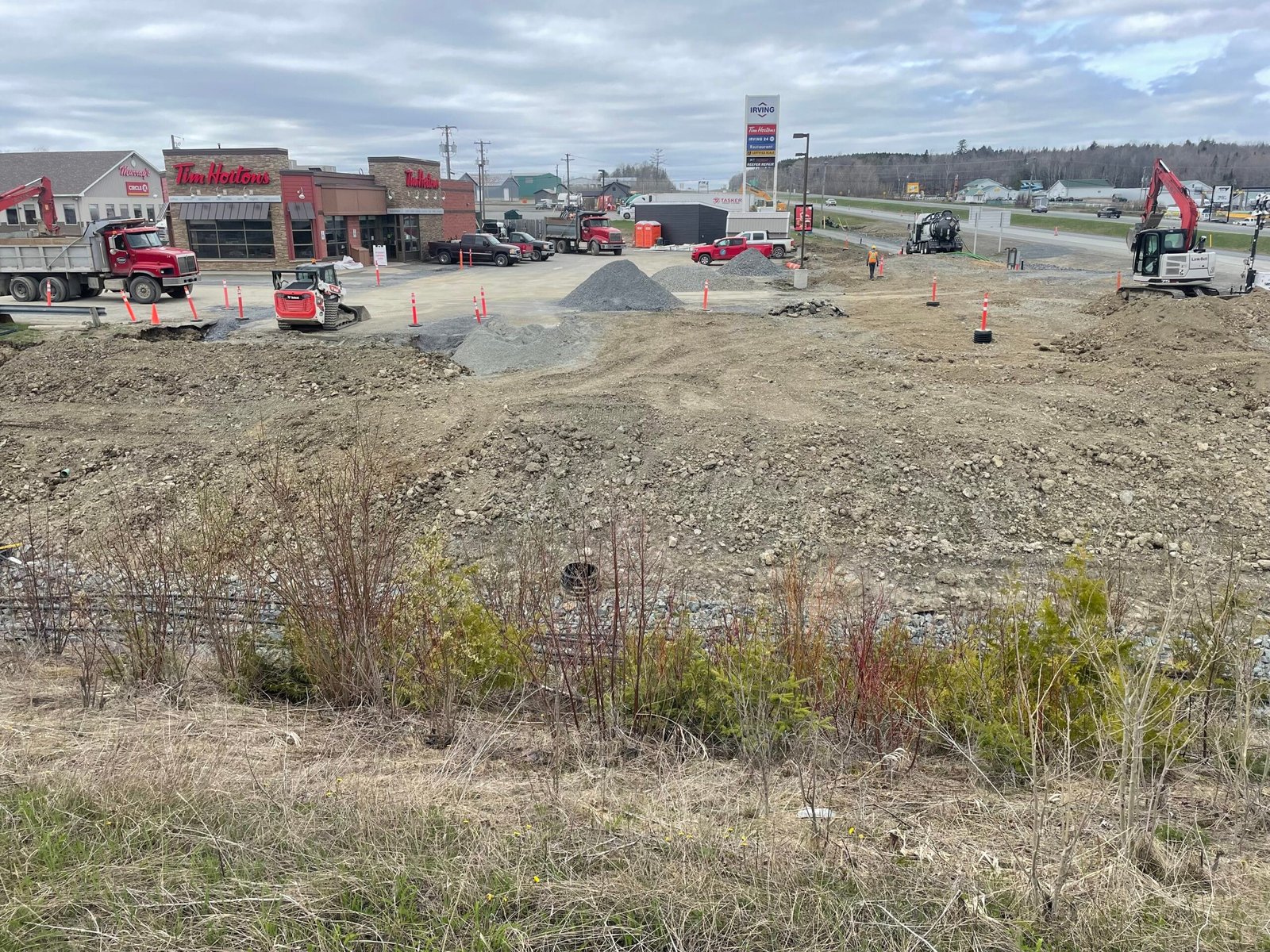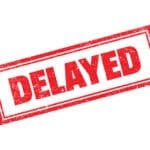Leak at Murray’s Irving in Woodstock now estimated at 180,000 litres
After nearly five months of remediation, the site of a massive diesel spill in Woodstock is starting to look less like an environmental war zone and more like a testing site, with nearly 30 well heads that experts say are likely there to continue to monitor the situation.
In April, the province said at least 174,000 litres of diesel had been recovered from the site since a leak was discovered in December.
Tim Hortons alerted officials after they reported their water was contaminated with fuel. The coffee shop has been closed since the leak was discovered on Dec. 13, 2024.
Irving Oil has never responded to media requests about the spill, but did issue a press release in April.
It noted that an investigation found that the fuel release was caused by a crack in a remote fill elbow, which has since been decommissioned.
“The systems and processes in place to protect against and prevent this unfortunate incident did not operate as intended,” the April 7 news release from J.D. Irving noted. “We have undertaken a thorough and extensive review of this matter to prevent further occurrences.”
A research scientist who spoke to CBC News believes the wells are to monitor groundwater.
“It’s reasonable that there should be some monitoring going on,” Melissa Bunn told the CBC’s Shane Fowler. “The nice thing about groundwater is that it moves so much slower than surface water, so there can be a bit of time in knowing where it moves.”
Documentation secured by the CBC information request demonstrated growing concerns among environmental officials.
With the Irving underground fuel tanks pinpointed as the source of the contamination, the company immediately hired Dillon Consultants to identify the problem and develop a mitigation strategy.
Environmental inspector documents indicate that surface water in the nearby highway ditches contained 90 per cent fuel.
Since the incident, the province announced it was conducting inspections of every fuel station in the province. The government has found that 15 gas stations were ‘non-compliant’ with regulations, with some stations being fined. The assessments of gas stations continues.















